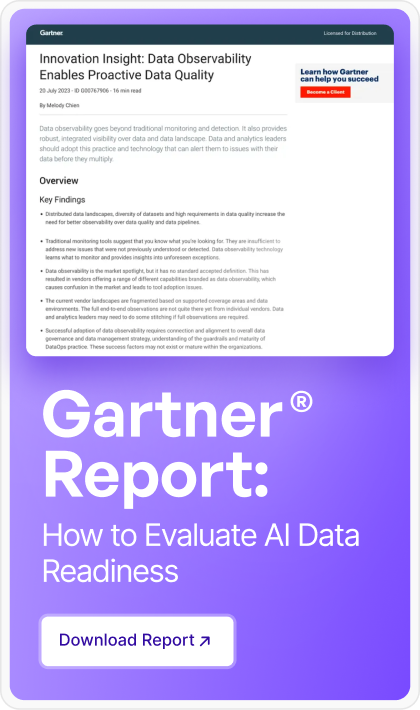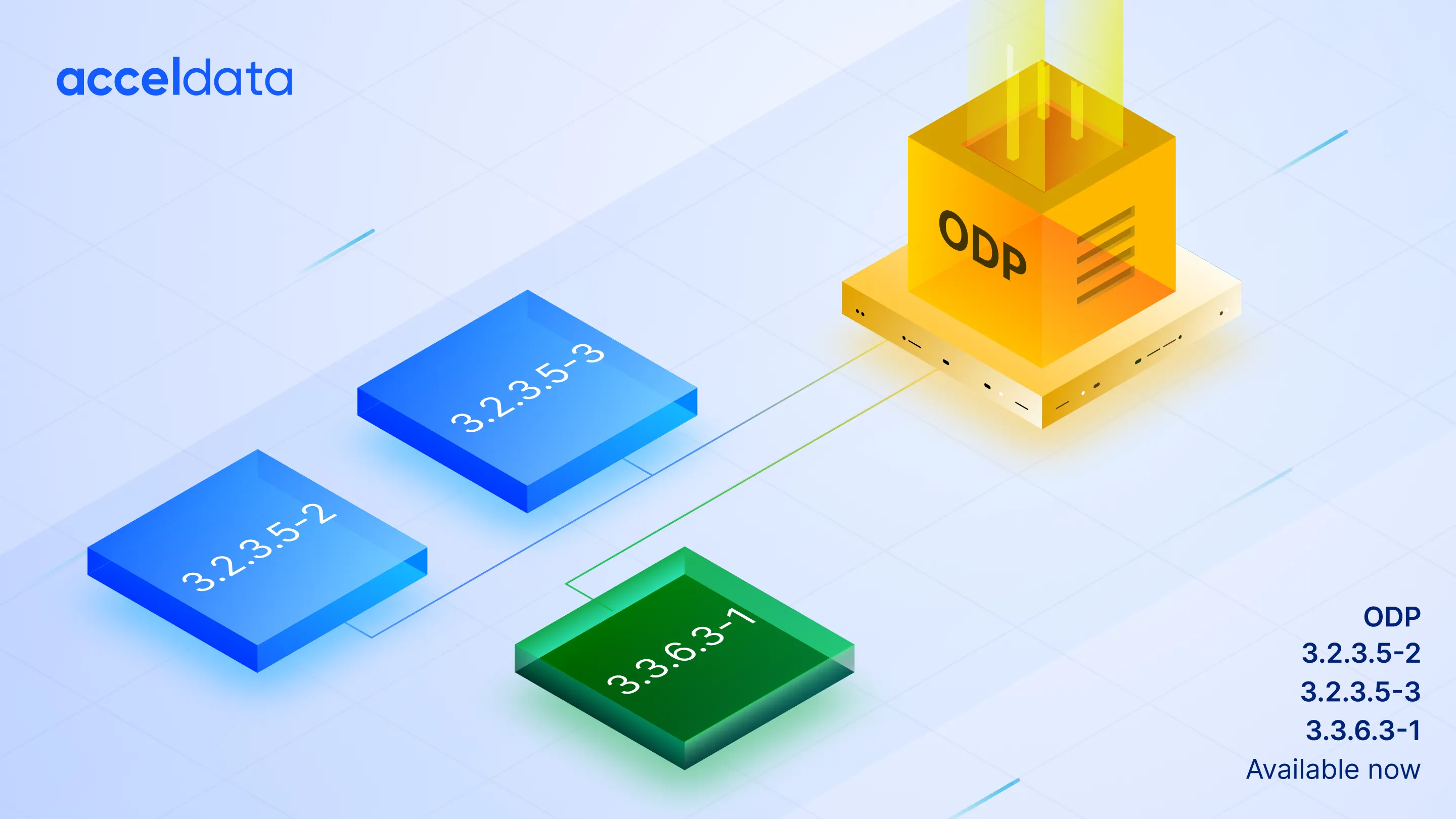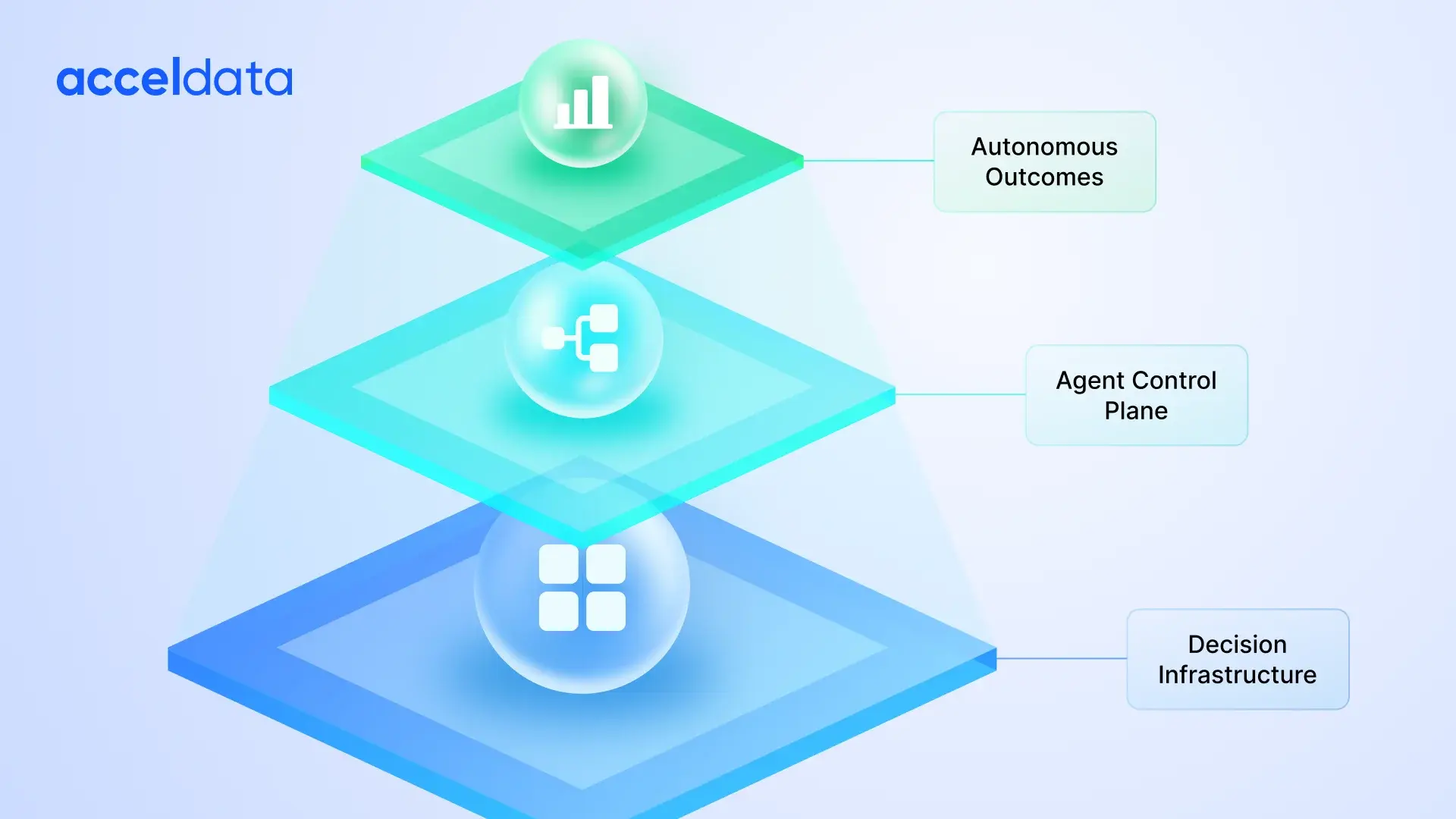The volume of global data is increasing at an unprecedented rate, with the big data market poised to grow from $350 billion today to $655 billion by 2029. This surge is driven by the increasing complexity, volume, and speed at which data is generated across industries. A projected CAGR of 12.7% between 2023 and 2028 further emphasizes that businesses must embrace advanced analytics and big data-driven technologies to stay competitive. Traditional data processing methods are no longer sufficient, as they can't keep pace with the exponential data growth.
In response, businesses are adopting artificial intelligence and big data technologies to handle this scale. 75% of enterprises expect significant improvements from adopting AI-enabled solutions that merge artificial intelligence and big data for enhanced decision-making. By leveraging AI and machine learning, companies can transform how they engage in data-driven decision-making, unlocking real-time insights, improving operational efficiency, and driving predictive analytics. As a result, industries like healthcare, finance, and retail are evolving, using data not just for insights but to shape strategic decision-making and gain a competitive edge.
This article delves into emerging trends, such as big data and AI integration, technological innovations, and the steps businesses take to future-proof themselves in the data-driven future.
Current State of Big Data
Big data is no longer just a tool for competitive advantage—it has become the backbone of innovation and operational efficiency across key industries, driving billion-dollar transformations.
In the healthcare industry, institutions like Kaiser Permanente saved over $1 billion by integrating Electronic Health Records (EHRs) with predictive analytics, improving cardiovascular disease outcomes and enabling better resource allocation. Big data continues to support advancements in disease prediction, optimizing operational workflows, and reducing costs across the healthcare sector.
In the finance sector, big data is a powerful force for fraud detection and real-time analytics. For example, JPMorgan Chase leverages AI-driven solutions to analyze vast transaction datasets and identify financial anomalies, significantly reducing exposure to fraud. As the industry moves forward, big data's integration with high-frequency trading and personalized banking services is expected to deepen, transforming financial crime prevention and customer engagement.
In retail, leaders like Amazon utilize big data to optimize their supply chains and personalize customer experiences. By analyzing customer behavior and inventory in real-time, Amazon can predict demand, reduce delivery times, and improve overall satisfaction—showcasing the true value of big data for e-commerce giants.
This rapid adoption across industries has propelled the big data market, signaling its central role in future business strategies.
Future Trends in Big Data
Let’s take a closer look at how predictive analytics, AI integration, and cloud computing are driving innovation across industries.
Predictive analytics
Predictive analytics leverages historical data to anticipate future trends, helping industries like retail, finance, and healthcare optimize operations and stay ahead of market demands. Amazon is a prime example, using predictive algorithms to forecast customer demand and manage its inventory efficiently. In 2020, these tools accounted for around 35% of Amazon’s total revenue, illustrating how integral data insights are to the company's success. The growing reliance on predictive analytics is clear as businesses continue to integrate it into their strategies to improve accuracy and speed in decision-making.
AI/ML integration
The combination of artificial intelligence and big data, especially through Machine Learning (ML), is pushing the boundaries of what's possible in data analysis. These technologies automate complex decision-making processes and uncover patterns that humans might miss. Google’s DeepMind AI, for instance, made a breakthrough in medical research by using data to predict protein folding, which is already speeding up drug discovery. With AI adoption expected to reach 70% of enterprises by 2025, it’s clear that these technologies are becoming vital for businesses looking to innovate and remain competitive.
Cloud computing & BDaaS
Cloud computing has transformed how companies manage and scale their data operations. Big Data as a Service (BDaaS) gives organizations an affordable and flexible way to handle large datasets without investing heavily in infrastructure. A well-known example is Netflix, which uses Amazon Web Services (AWS) to analyze billions of user interactions, fine-tune content recommendations, and improve customer experiences. By 2022, over 83% of enterprise workloads were already on the cloud, reinforcing how essential cloud platforms have been enabling companies to process and analyze data efficiently at scale.
Emerging Technologies Impacting Big Data
As big data evolves, emerging technologies like edge computing, blockchain, and quantum computing are reshaping how data is processed and managed. Here's how each of these innovations is playing a transformative role.
Edge computing
Definition: Edge computing processes data closer to its source, reducing latency and improving real-time analytics. This technology is vital for applications that demand immediate data processing, avoiding delays caused by centralized cloud infrastructure.
Use Case: General Electric (GE) utilizes edge computing to monitor jet engine performance in real time, helping reduce downtime and improve maintenance schedules. GE can enhance operational efficiency and prevent costly equipment failures by processing data on-site rather than sending it to a centralized location.
Blockchain integration
Definition: Blockchain offers a transparent and secure way of managing and sharing data, making it an ideal technology for industries that require verifiable and immutable data records.
Use Case: Walmart uses blockchain to trace its food supply chain, enabling the company to identify issues quickly and reduce food waste. By tracking each product from farm to shelf, Walmart has cut food waste by 20%, enhancing sustainability and food safety.
Quantum computing
Definition: Quantum computing will transform big data analysis by allowing the processing of complex datasets at unprecedented speeds, solving problems that traditional computers struggle with.
Use Case: IBM’s Quantum Computing division is working on algorithms that could significantly accelerate drug discovery. Early trials suggest that quantum computing could cut analysis times from years to months, making breakthroughs in medicine faster and cheaper.
Big Data and Privacy Concerns
The increasing emphasis on data governance is evident, with companies adopting stricter frameworks to ensure data security and compliance. In 2021 alone, GDPR-related fines amounted to $332 million, showcasing the rising costs of non-compliance. For instance, Apple employs differential privacy techniques to anonymize user data while still drawing meaningful insights from it.
However, balancing data utility with privacy, particularly in sectors like healthcare and finance, remains a significant challenge, as companies must navigate sensitive data while adhering to stringent regulations.
Predictions for Big Data
The future of big data is set to be transformative, with several key trends shaping the industry.
Growing demand for data science roles
The demand for data science roles is surging, with data scientist jobs projected to grow by 35% by 2033. Tech giants like Google and Facebook are increasing their data science teams by 20% annually, underscoring the essential role these experts play in unlocking actionable insights from vast datasets. This growing demand reflects the importance of data-driven decision-making across industries.
AI/ML automation
AI and machine learning will also continue to revolutionize big data, playing a critical role in data-driven decision-making across industries. By 2025, AI is expected to generate $3.9 trillion in business value, with organizations leveraging these technologies to automate complex processes and extract valuable insights. Uber’s dynamic pricing model, which uses real-time data processed by AI, has improved efficiency during peak times, demonstrating the practical benefits of integrating AI into big data systems.
Actionable insights
Furthermore, actionable insights derived from big data will become increasingly important. IBM Watson Health is an example of this trend, using big data analytics to reduce patient readmission rates by 15%. As more industries adopt similar approaches, the potential to drive meaningful, data-informed improvements will only expand, solidifying big data’s central role in the future of business intelligence.
Closing Thoughts: The Future of Big Data Is Here
Big data is rapidly transforming industries, with AI/ML, predictive analytics, and cloud computing leading the charge. These technologies are helping businesses extract deeper insights, enhance decision-making, and improve efficiency. To remain competitive, companies need to leverage these tools now.
With Acceldata’s data observability platform, you can gain full control of your data operations, ensuring real-time insights, data accuracy, and governance across your organization. Beyond solving the data quality, reliability and cost optimization issues for an enterprise, Acceldata confidently scales as data volumes increases. This makes data management smarter, efficient, and intelligent.
Ready to take the next step? Book a demo with Acceldata today and explore how your business can thrive with powerful data management solutions.
Summary
The future of big data is driven by advancements in AI, predictive analytics, and cloud computing, pushing businesses to adopt new technologies for faster insights and decision-making. Industries like healthcare, finance, and retail are leveraging big data to improve efficiency and reduce costs. Emerging trends such as edge computing, blockchain, and quantum computing are transforming how data is processed and managed. Companies like Acceldata provide critical platforms that ensure data quality, governance, and real-time insights, enabling organizations to thrive in a data-driven world.








.png)








.webp)
.webp)


